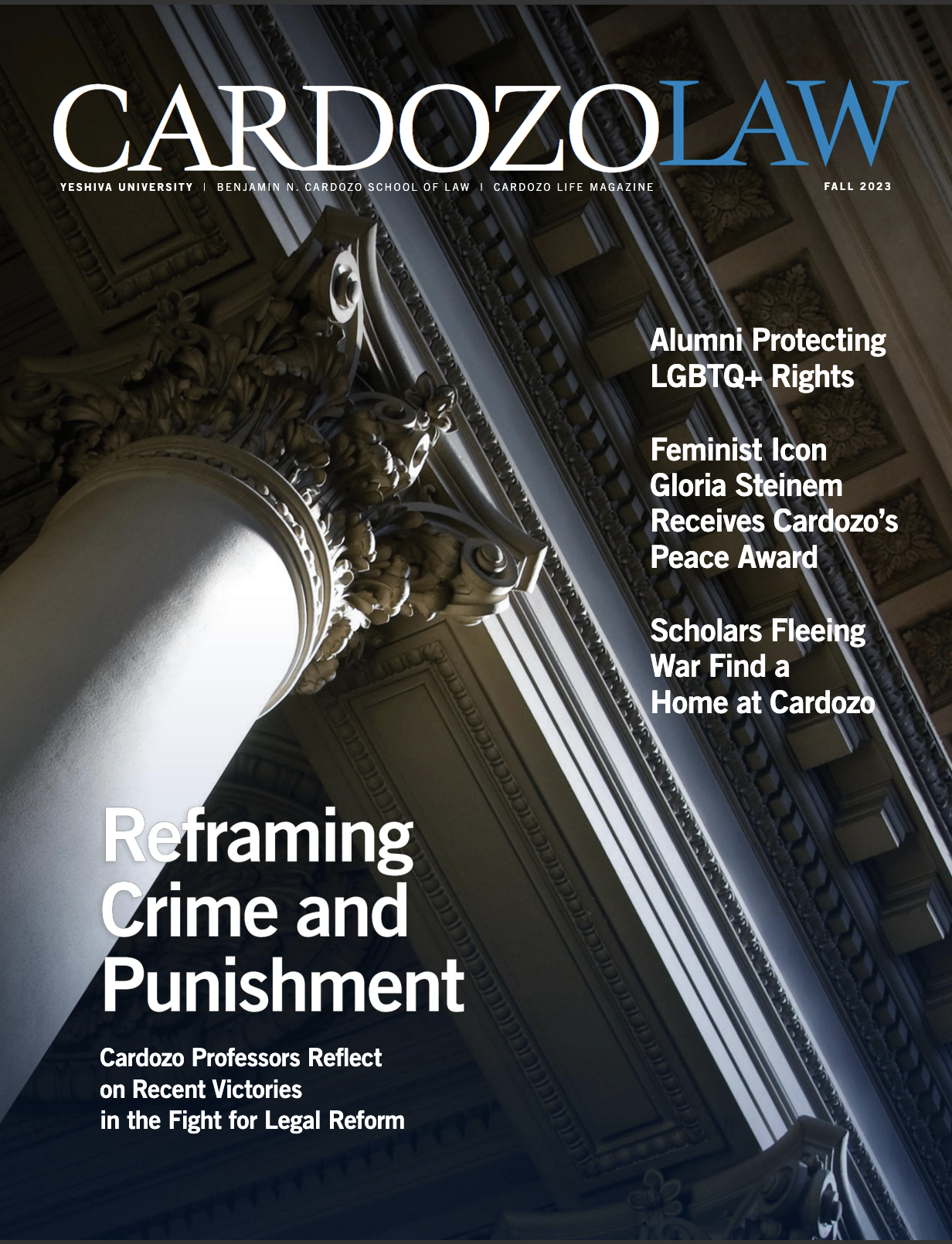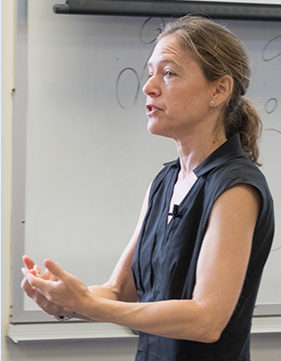
Faculty with Impact
Cardozo Professors in the Media
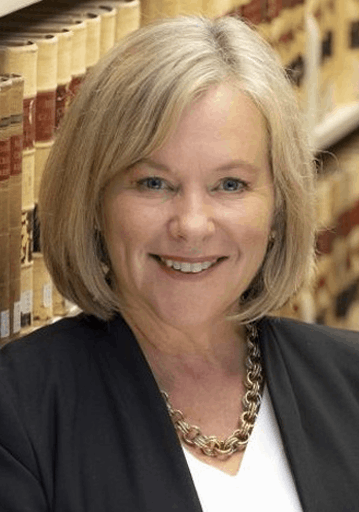

Cardozo's reputation for academic excellence is rooted in the scholarship of our faculty, whose work shapes law and policy. I'm proud to share with you some of the recent works of my colleagues that have appeared in major media outlets. I hope you find them thought-provoking.

DEAN MELANIE LESLIE
Melanie Leslie became dean of Cardozo Law School on July 1, 2015. She is the first Cardozo Law graduate and the first woman to hold the position.
Dean Leslie was the driving force behind a number of important initiatives at the intersection of law, technology, intellectual property, and business, including The FAME Center for fashion, art, media and entertainment law, which prepares students to work in the creative industries through its extensive curricular offerings; The Cardozo Patent Diversity Project, which seeks to increase the number of women and minority innovators receiving patents; The Blockchain Project, which offers classes and symposia on blockchain and regulation; The Center for Rights and Justice; and The Center for Real Estate Law and Policy. Dean Leslie spearheaded the Deans Leadership Academy, an annual virtual conference to provide guidance and skillsets to future law school deans.
A Cardozo professor since 1995, Dean Leslie is a leading scholar in trusts & estates, fiduciary obligations and nonprofit governance. Courses taught include Property, Trusts and Estates, Nonprofit Governance, and Evidence. She has been presented the “Best First-Year Professor” award by three graduating Cardozo classes. She served as Cardozo’s Vice Dean from 2014-15.
Dean Leslie is a prolific scholar whose work has been published by the NYU Law Review, Boston College Law Review, Florida Law Review, William & Mary Law Review, Georgetown Law Journal, and Indiana Law Journal, among others. She is the co-author of a leading casebook, Estates and Trusts, Cases and Materials, as well as Concepts and Insights: Trusts and Estates. Dean Leslie has been a Visiting Associate Professor of Law at New York University School of Law, and a Visiting Professor of Law at Columbia Law School. She has served on the NY State Bar and NYC Bar Joint Committee on the Uniform Trust Code, as a Legal Fellow of the American College of Trusts and Estates Counsel (ACTEC), and on the executive committees of the AALS Sections on Trusts & Estates and Nonprofits and Philanthropy.
Prior to joining the Cardozo Law faculty she clerked for Justice Gary S. Stein of the New Jersey Supreme Court and practiced commercial litigation at Debevoise & Plimpton, Cleary Gottlieb Steen & Hamilton, and McCarter & English.
A native of Las Vegas, Dean Leslie received her B.A. in Theater from the University of Oregon, with honors, before moving to New York City, where she spent several years working as a professional actor and vocalist. She then received her J.D. from Cardozo Law magna cum laude in 1991, where she was the Executive Editor of the Cardozo Law Review.










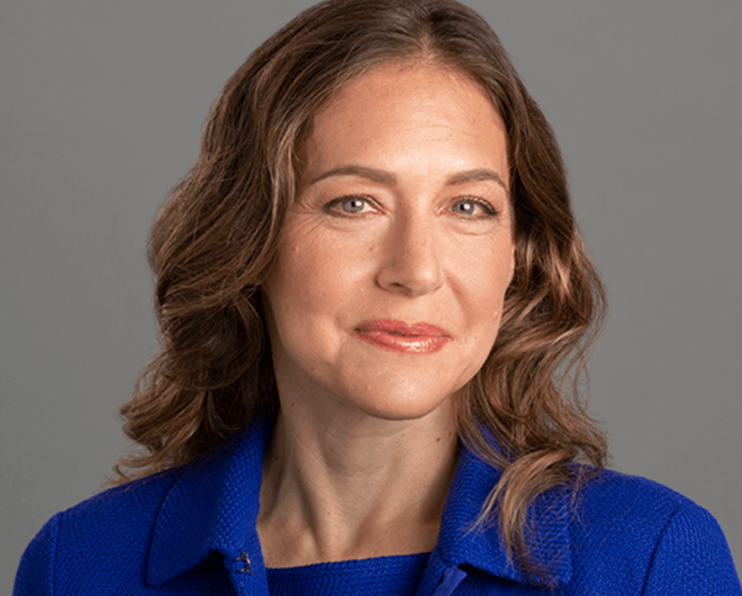
Jessica Roth
The Washington Post
“It would be oversimplifying the case to say that these are parents who've been charged with manslaughter based on their son committing a school shooting — and leave out the critical distinct facts about this particular case. The details just make it seem that there was a callous disregard for the danger or possible danger.”

Jacob Noti-Victor
Time Magazine
“Reputable producers would want to collaborate with her and make sure that she was involved. Some elements of her story could be protected by copyright and other forms of intellectual property, and trying to adapt the story without her permission would be risky.”

Samuel Weinstein
The New York Times
“It’s a period of massive uncertainty for Google, where they’re not sure what their business practices are going to look like in two or three years.”
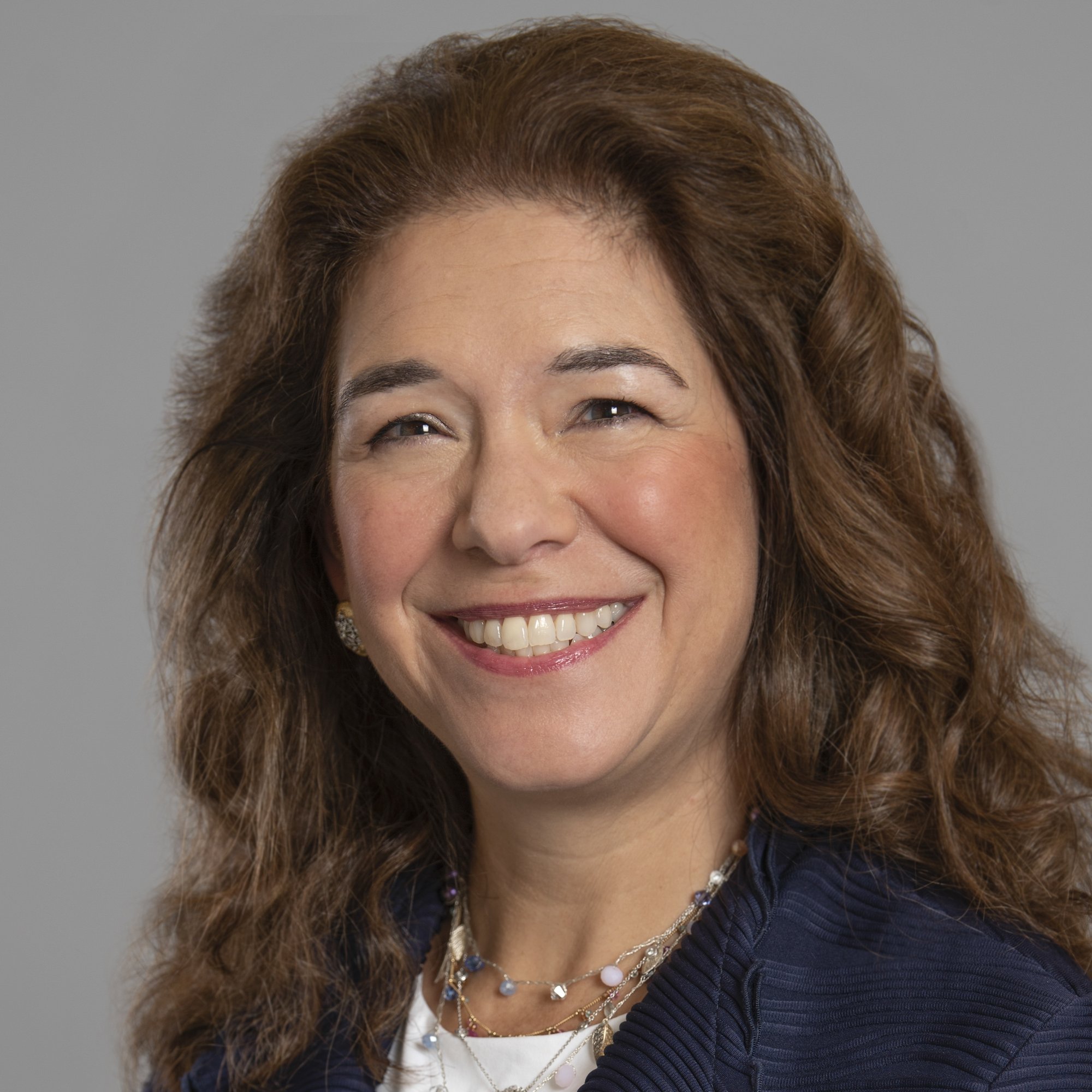
Andrea Schneider
Los Angeles Times
“The suspension of the talks last week, when the studios walked away, was a classic negotiation ploy. We are in Hollywood, and this is good acting: ‘I’m offended. I’m appalled. There’s no way we could ever give up this money,’ We will see how fast they can get back to the table. They’ve made progress and I don’t think either side wants to throw that all away.”

Stewart Sterk
Gothamist
“The state has to pursue bolder measures to tackle the housing crisis, even if they’re unpopular. The principal thing leading to higher housing costs is lack of supply. The legislature is focusing on the small things it can control without making people upset. They need to put the city in a position where more housing can get built.”

Young Ran (Christine) Kim
Bloomberg Law
“Maryland has said that it is going to use the tax revenue for educational programs, and I think this is a very good policy to achieve a more distributional goal for the state government. If a new tax has policy problems, then of course we have to litigate it. But when ITFA (Internet Tax Freedom Act) is the only thing standing in the way of a state tax, then that proves problematic.”
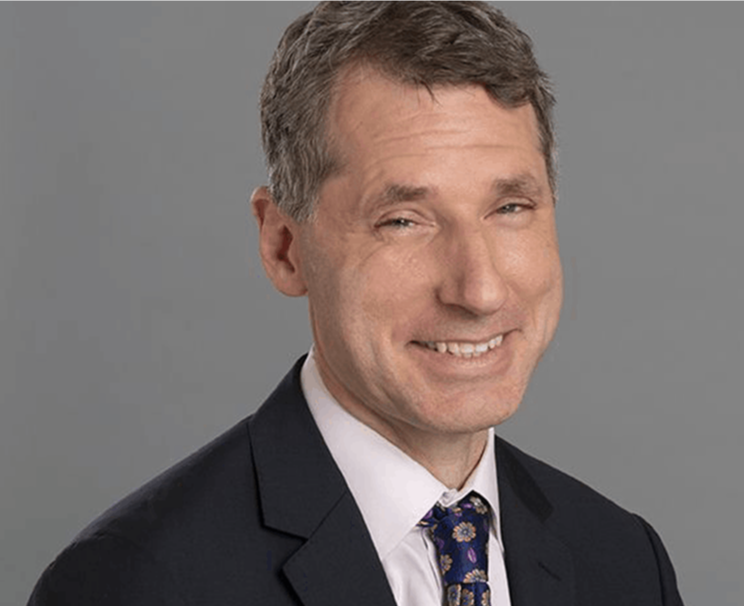
Alexander Reinert
USA Today
"It seems clear that Mr. Trump’s lawyers will argue that the attorney general and the court overstepped here because there were no clear victims in this case. But, even if showing a victim were necessary, here the banks were victims because had they known the true value of Mr. Trump’s assets they would have been able to charge a higher interest rate on their loans.” e much-deserved compensation to the people who were subjected to it.”

Saurabh Vishnubhakat
Axios
“Users would be deprived of a platform that they already had access to and have come to rely on. I'm pretty skeptical of any sort of congressional defense of the First Amendment rights of users being respected here. Without legislative findings of fact, that charge that you're overcorrecting a problem that you haven't even proven really exists, is a sort of one-two punch that the law is susceptible to."
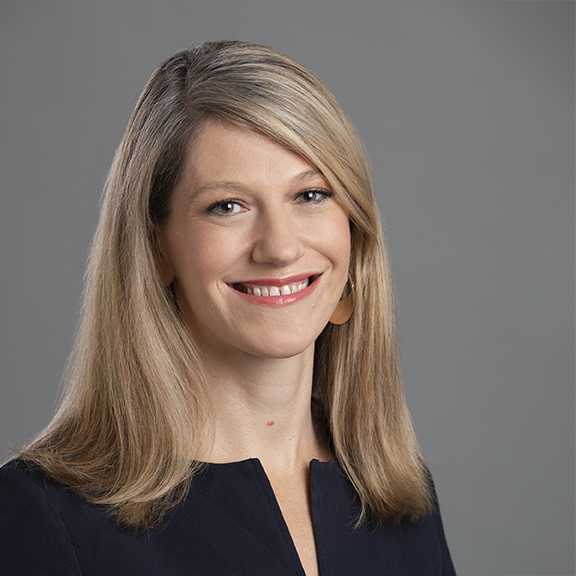
Kathryn Miller
Gothamist
“Extreme cases make bad policy. When you legislate around something that is an extremely unlikely case scenario, you sometimes don’t think about the typical scenario.”
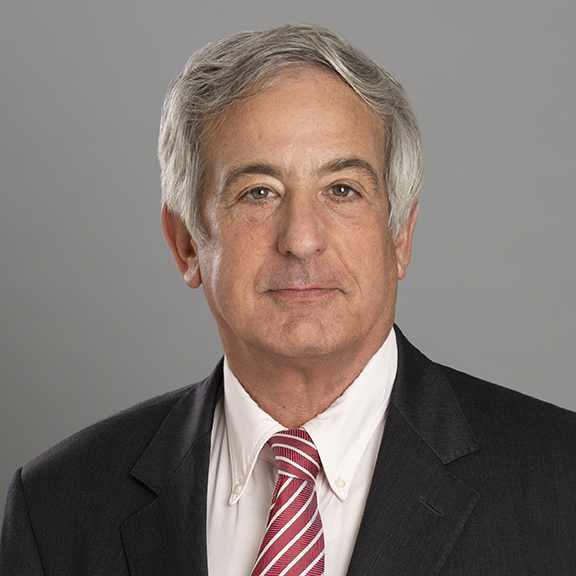
Edward Zelinsky
Associated Press
“An awful lot of people are hurt by these laws. While New York and other states like to pretend that these are wealthy people, the people who are most hurt by this rule are often people of modest income, middle income, people who can’t afford lawyers.”
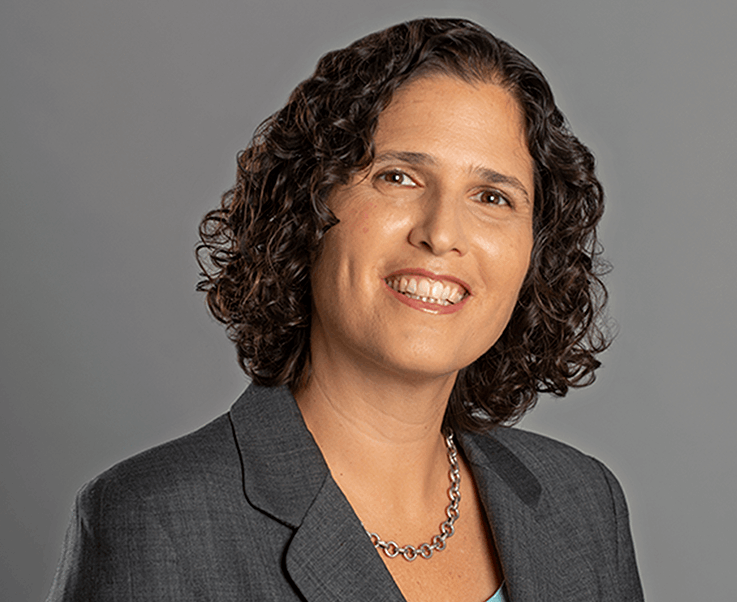
Betsy Ginsberg
ABC News
"These laws could cause Trump problems depending on what happens with his sentence and whether a particular country bans people convicted of a comparable crime ... [but] governments of these countries likely have some discretion to waive the prohibition."
